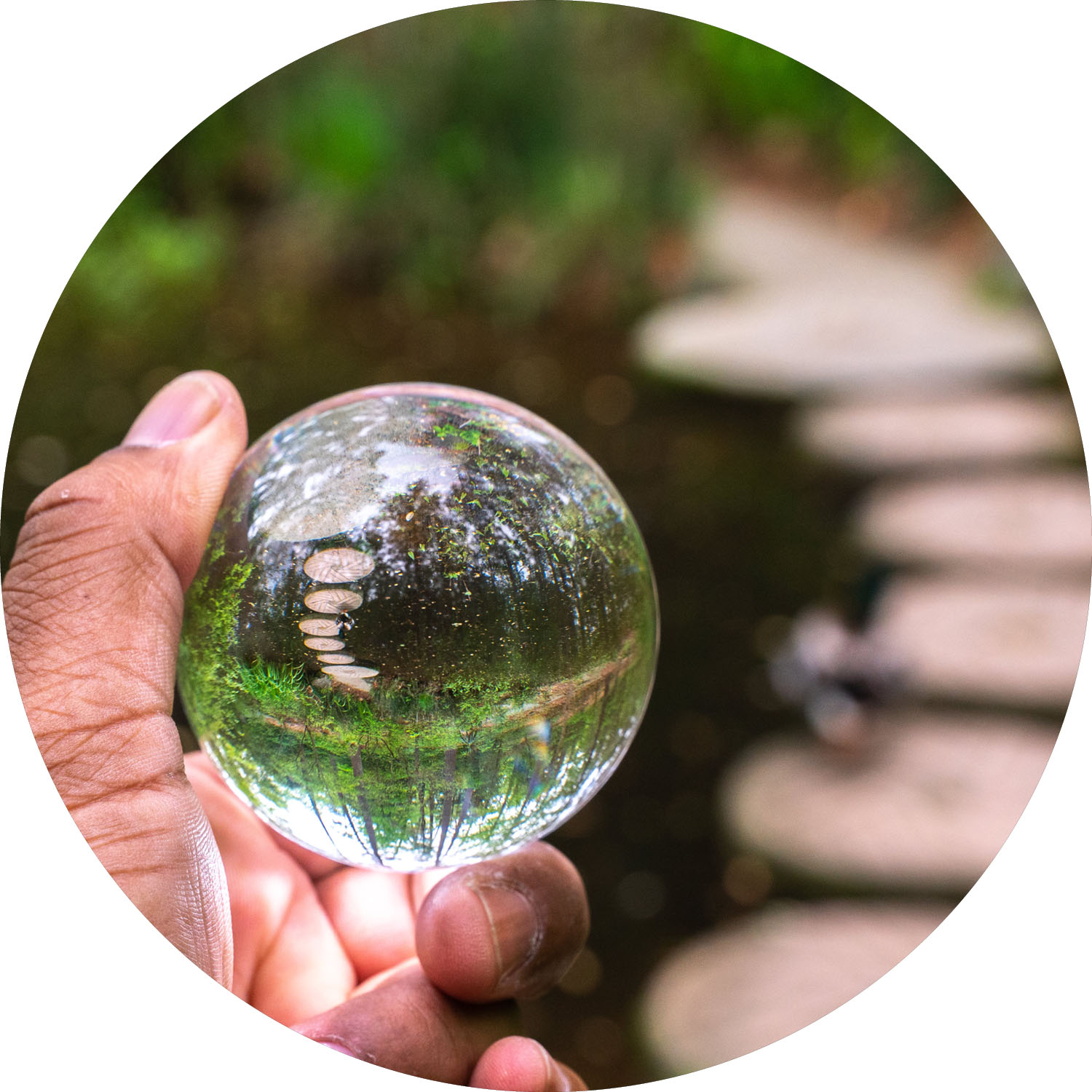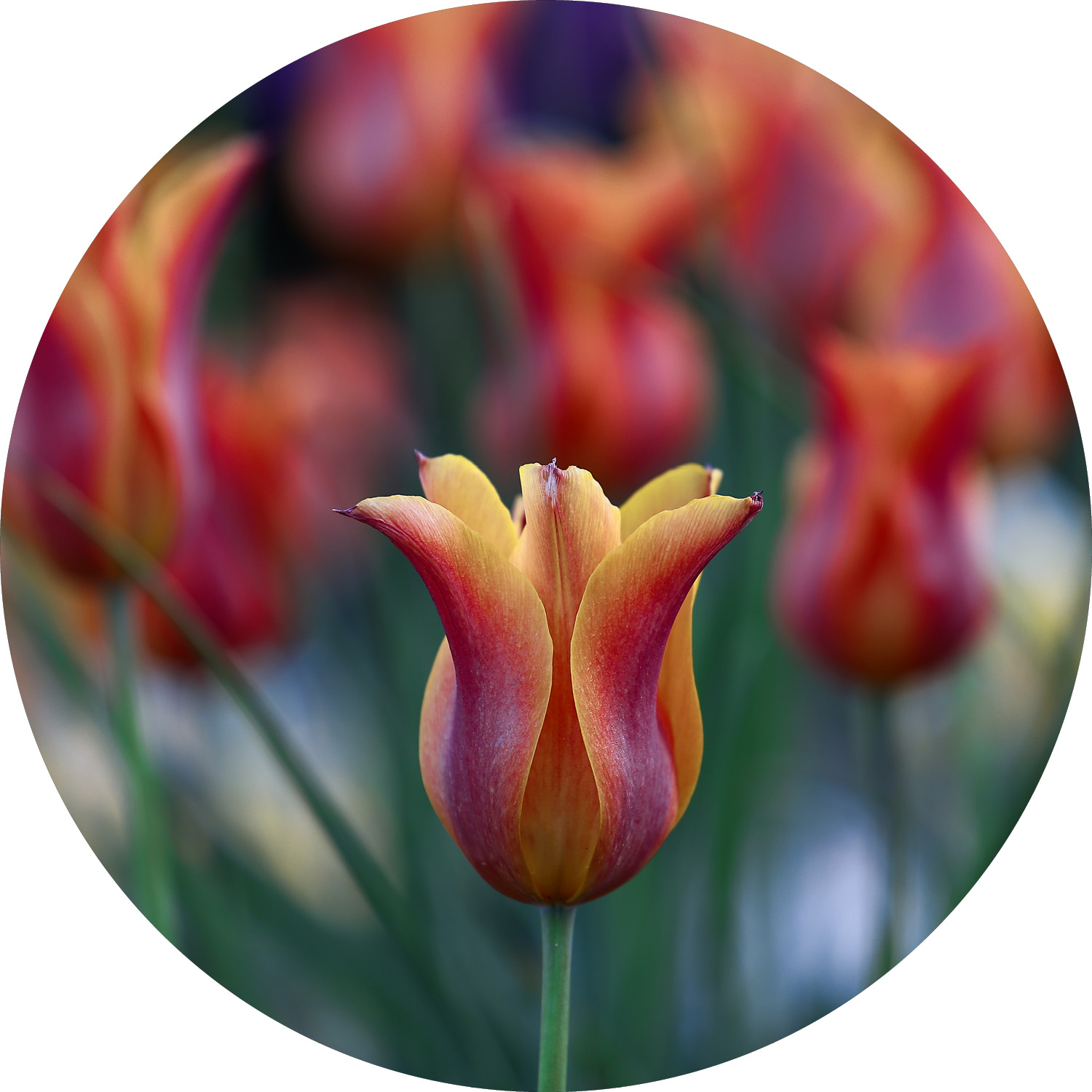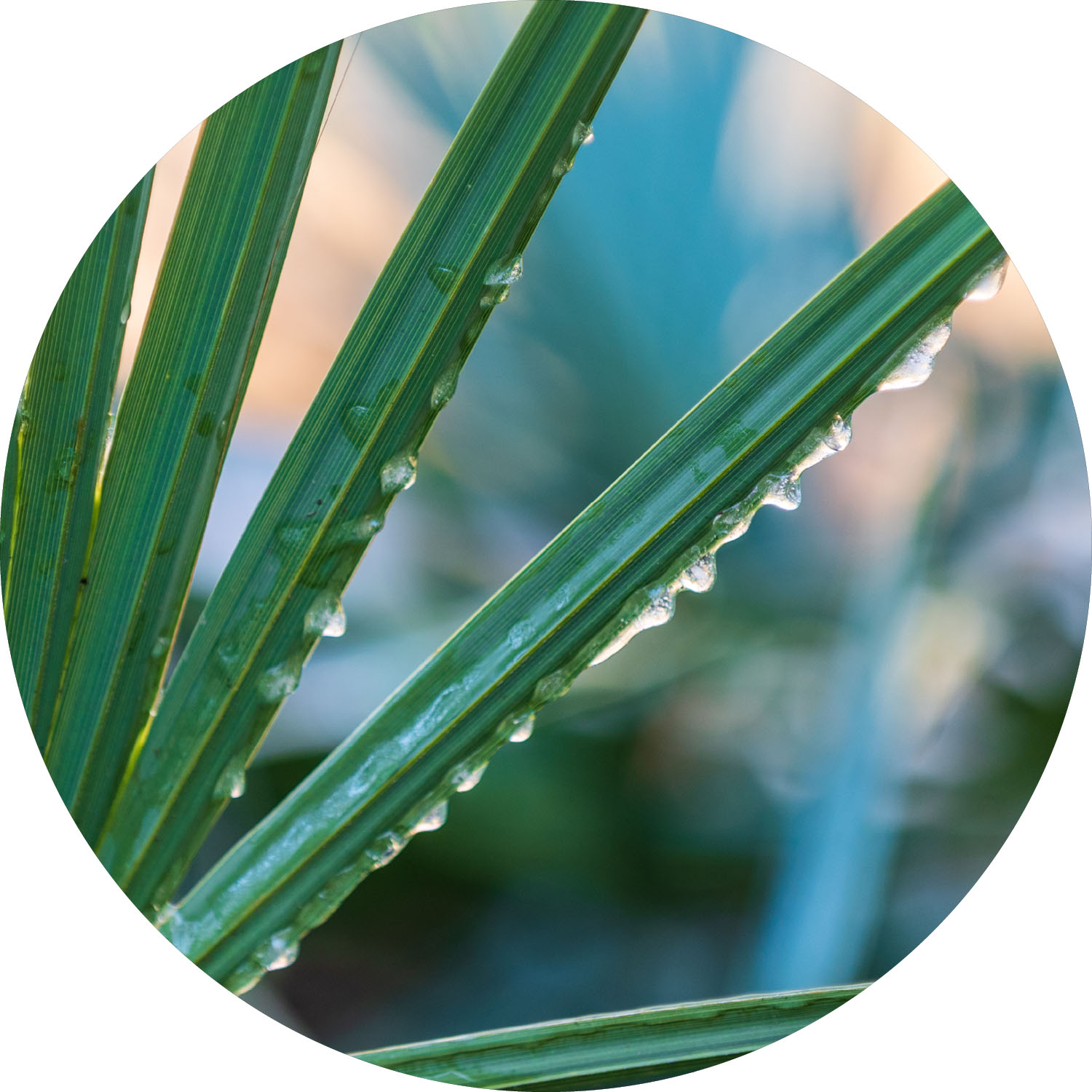Grow your love of the natural world with ways to learn, relax and connect with the human and beyond-human members of our community.
Resource Highlights

Black in Nature: Resources for Everyone
There are many wonderful environmental educators and researchers sharing their knowledge and experiences online to broaden experiences and access to those who enjoy the outdoors. Here are a few of the people we like to learn from.

Indigenous Relationships With This Land
Indigenous people hold the knowledge that their ancestors have known for millennia. This includes an intimate and respectful understanding of the natural world.

Children & Family Activities
Explore connections between nature, art and people together. We’ve highlighted a few of our favorite activities for children of all ages, guaranteed to spark your curiosity.

Nature Meditations
We know that making time to de-stress is important. So we have teamed up with Duke alumnae to bring you some meditations to help you regain your focus and serenity.

Home Gardening Resources
If you’re inspired to hone your gardening skills after a visit to Duke Gardens, we’re here to help. Enjoy this selection of helpful resources and how-to highlights.

Garden Talk Articles
Garden Talk digs into the world of plants with horticultural highlights written by Duke Gardens staff members. We can’t wait to tell you more about some of our favorite flora found throughout the Gardens.

Collaborative Science
Collaborative science (also called citizen science or community science) is when people who aren’t professional scientists help collect and analyze information used to answer research questions that can’t be studied without a large group of people. Learn how you can participate.

Identification Tools
Many of the plants in our collection have labels, but the animals or fungi that live here don’t. If you want to figure out what that thing is, try using these helpful identification tools.
Comprehensive Resource Library
Search for resources based on interests, audiences and more.
Indigenous people hold the knowledge that their ancestors have known for millennia. This includes an intimate and respectful understanding of the natural world.
This project exists to make a living land acknowledgement. By following the signs and scanning the QR codes, you can listen to Indigenous people tell their own stories.
You can listen to an introduction by Vickie Jeffries (Occaneechi Band of the Saponi Nation), Stands Among Elk (Meherrin Nation) and John Blackfeather (Occaneechi Band of the Saponi Nation) by scanning the QR code.
Why is it important to recognize the Indigenous peoples nearest to you?
Unfortunately, there are many misconceptions about Indigenous people due to poor media representation and a lack of general education.
Vickie Jeffries (Occaneechi Band of the Saponi Nation) and Roo (Catawba Nation) dispel some misconceptions about Indigenous peoples’ relationships with the land. Vickie and Roo paint a beautiful, correct and modern picture of Tribal Nations that surround Duke Gardens.
Think about stories that you have heard about Indigenous people. Based on the source, how accurate do you think these stories are?
In the English language, we separate “plants” and “animals” from “humans.” We also separate “nature” from “everything else.” However, this distinction is not the same in every language. For example, it does not exist within many Indigenous languages.
Roo (Catawba Nation) explains how the Catawba do not have a word for differentiating plants, animals or nature from humans. This way of understanding leads to more respectful relationships with the beyond-human world.
How can thinking of humans as part of nature help us to treat the environment better?
There are many medicines that are important to Indigenous people around the world. Here the term “medicine” describes plants with both ceremonial and medicinal uses. This stems from the belief that one’s spiritual and physical well-being are the same.
Stands Among Elk (Meherrin Nation) tells us the magical story of how his people learned all their medicines.
How does hearing about these plants from Stands Among Elk make you think about your relationship with plants and the environment?
Cedar, sage, sweetgrass and tobacco are sacred to Indigenous peoples across North America. These herbs are used to treat many illnesses and are crucial in many ceremonies.
Listen to Vickie Jeffries (Occaneechi Band of the Saponi Nation) tell us more about the four sacred herbs. Vickie describes cedar as “the grandfather medicine” and sweetgrass as “the hair of Mother Earth.”
How can you show respect to the plants that are around you?
Indigenous peoples learned how to use plants to heal many physical and spiritual ailments.
Listen to Stands Among Elk (Meherrin Nation) and Vickie Jeffries (Occaneechi Band of the Saponi Nation) tell us how their peoples use plants and fruits like acorns, sumac, cedar and strawberries to treat everything from dandruff to cholera.
What plants are you most familiar with? Do you know any medicinal uses for these plants?
Because they don’t have any apparent use, pine needles might be easy to overlook. However, to Vickie Jeffries and her ancestors (Occaneechi Band of the Saponi Nation), pine needles were a sacred and useful resource.
Today, Vickie creates beautiful baskets from pine needles. Vickie leaves a tobacco offering each time she harvests pine needles, just as she does for every plant.
Can you think of any uses of things in nature you might consider “waste”?
While it might not seem significant, the availability of seeds is one of the world’s most important economic questions.
Roo (Catawba Nation) shares how industrialized agriculture approaches seeds from an ownership perspective, which can harm the environment and threaten relationships with these plants. Many Indigenous and small-scale farmers globally understand seeds through their multi-generational relationship with people, and they are working to reclaim that way of working together.
In what ways is it helpful to think about how your food is grown?
Have you ever wondered how birds got their songs? Stands Among Elk (Meherrin Nation) tells us how the Creator awarded birds their songs after a fierce competition.
Then Roo (Catawba Nation) explains how the Catawba people let the birds name themselves. Roo has also created children’s songs featuring the bird names in the Catawba language.
How is the Catawba way of “letting the birds name themselves” different from bird names in English?
Nature can tell us many things. For example, it might remind us to slow down and reflect upon life’s beauty. It might also remind us to take better care of the environment and preserve the beauty that we see.
John Blackfeather (Occaneechi Band of the Saponi Nation) reminds us that the pine trees, water, and wind each have something to tell us.
Take a moment of silence. What is the world telling you right now?
The piedmont prairie would not exist without Indigenous peoples’ fire management practices. However, colonial leaders and the early environmental conservation movement advocated for the removal of Indigenous peoples and the suppression of Indigenous land management practices. This led to the decline of the piedmont prairie and the near extinction of many species.
Roo (Catawba Nation) describes the importance of these formerly forbidden fire management practices and why they must continue today.
How can human activity be beneficial to the environment rather than harmful?
How do we prioritize Tribal Nations and also repair our own relationship with the environment? Roo (Catawba Nation) answers this question and proposes a way to work toward a more equitable future. The best path forward is listening to Indigenous people and finding ways to support them. You can do this by backing politicians who care about Indigenous issues, donating to organizations like the Triangle Native American Society, purchasing art from an Indigenous artist, going to a powwow and more!
How can you take action to support a local Indigenous community?
White Corn is one of the most important cultural plants for Iroquoian peoples, including the Meherrin Nation of North Carolina. In addition to being a sacred plant, White Corn is also an important food.
Stands Among Elk (Meherrin Nation) tells the magical story of how his people received the White Corn. It is so important that Stands Among Elk refers to White Corn as “the milk of our people.”
What are the most important foods to your culture? Where do they come from?
For many people, the most exciting part of fall is when the leaves change color. Cultures from around the world have many different explanations for why this occurs.
Stands Among Elk (Meherrin Nation) tells the story of why the leaves change color, according to the Meherrin peoples. This magical story provides an otherworldly explanation for a natural phenomenon. However, the Indigenous philosopher Vine Deloria Jr. (Dakota) points out that you can believe science and myth at the same time.
How do stories about nature impact the way we think about the environment?
Corn, beans and squash are three of the most important plants to Indigenous peoples throughout North America. They are called “the three sisters” by Iroquoian Tribal Nations like the Meherrin Nation of North Carolina.
Stands Among Elk (Meherrin Nation) tells the story of how his people received corns, beans and squash and how they became known as “the three sisters.”
Have you heard about the three sisters before? Did you hear any similarities in Stands Among Elk’s story?
John Blackfeather (Occaneechi Band of the Saponi Nation) grew up in Hillsborough, N.C., on the lands that his ancestors have stewarded for millennia.
As a child, John received many cultural teachings from his mother and grandparents. John was also able to freely explore nature and to build an intimate relationship with the Occaneechi homelands.
What are the similarities and differences between John’s upbringing and your own?
Over generations, plants become traditional to cultures around the world. Every tribal nation has plants that it considers sacred. For example, the Schweinitz’s sunflower is important to the Catawba Nation of South Carolina.
Roo (Catawba Nation) talks about how his idea of “traditional” plants has changed. According to Roo, the traditional stance for Catawba people has always been to adopt new plants and to make them traditional over time.
What makes a plant traditional? How can this change over time?
7 Directions of Service was founded by Indigenous activists Crystal Cavalier-Keck and Jason Crazy Bear Keck on Crystal’s ancestral Occaneechi-Saponi lands, the rural Piedmont region of North Carolina. 7 Directions of Service focuses on protecting traditional pre-US treaty areas (NC/VA/SC), educating Indigenous community members, tribes, surrounding communities, and youth on current environmental issues, developing the next generation of leaders in the environmental movement, promoting activism within our tribes and Indigenous communities, and empowering Indigenous community members to effect change.
Explore the different native communities in North Carolina.
Today, at your sit spot, you are going to closely observe one animal.
Migration is movement from one place to another. Find out how animals move from place to place.
A virtual window into the natural world of birds.
Learn more about bird nests.
Sereval Indigenous Nations native to North Carolina use the Black Walnut tree for medicinal purposes. Find out more!
Bumble Bee Watch is a collaborative effort to track and conserve North America’s bumble bees. Upload photos of bumble bees; identify the bumble bees in your photos and have your identifications verified by experts; help researchers determine the status and conservation needs of bumble bees; help locate rare or endangered populations of bumble bees; learn about bumble bees, their ecology, and ongoing conservation efforts; and connect with other citizen scientists.
Learn about the animals that are Masters of Disguise.
Aprende sobre los animales que son Maestros del Disfraz.
Aprende sobre los animales que son Maestros del Disfraz.
Gardens are living communities, and they need different things over their whole life to stay healthy. There are many things gardeners do to care for their plants.
Map your way to chickens, veggies, herbs, etc
You can use art to express yourself, just like with talking or writing. This is your chance to let other people know what your community means to you.
Questions?
Please contact us at 919-668-1707 or GardensEducation@duke.edu.
